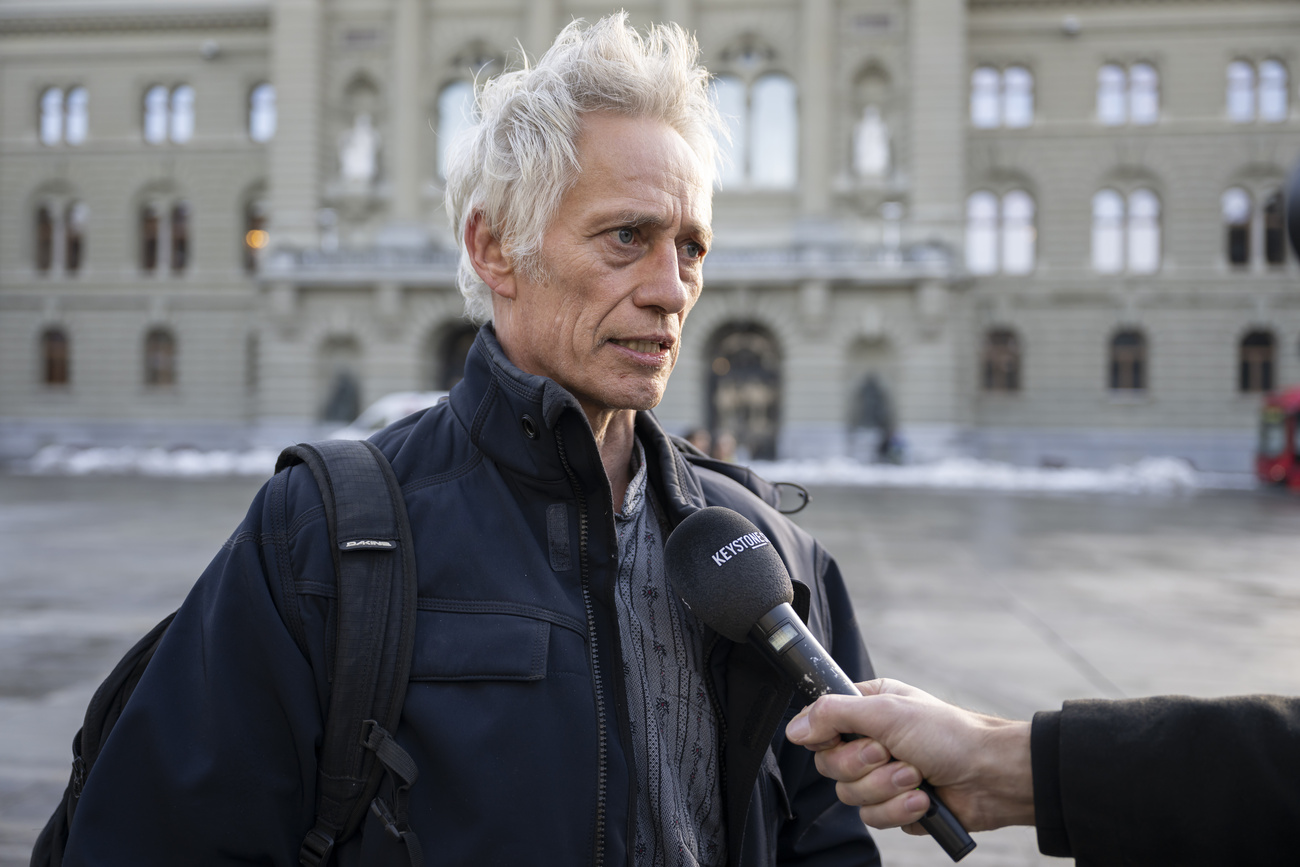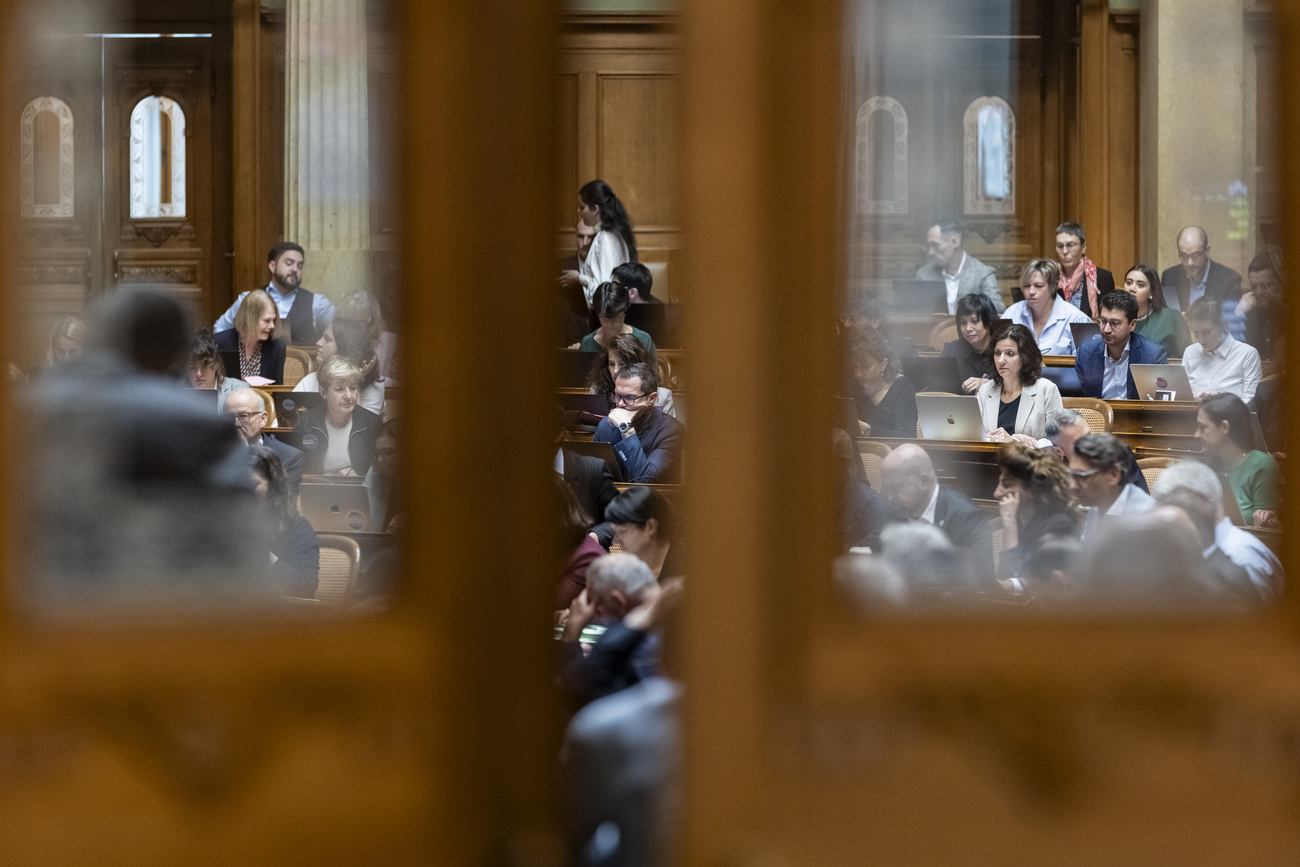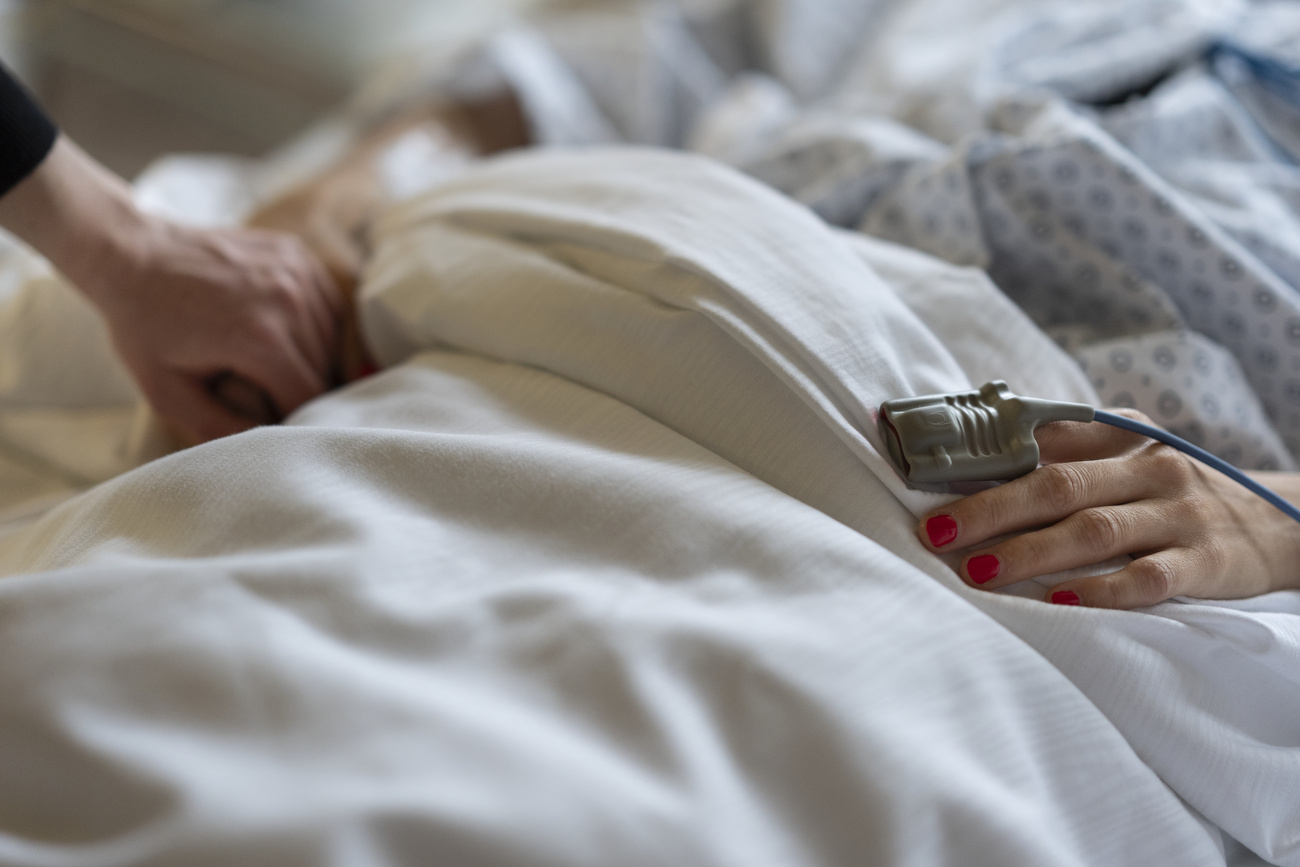

Switzerland Today
Dear Swiss Abroad,
The Swiss parliament has no constituency dedicated to citizens living abroad – but a Swiss Abroad has just taken a seat in the House of Representatives.
Also in today’s selection: a study on hostility towards elected officials, updates on Switzerland’s participation in EU programmes such as Horizon and Erasmus, and an ethical debate on assisted suicide and organ donation.

Following the election of Green Party politician Nicolas Walder to the cantonal government of Geneva, Rudi Berli – a Swiss living in France – will take his place in the House of Representatives.
Originally from Zurich, Berli is a horticulturist and long-time member of Uniterre, a Swiss agricultural trade union. He lives in Pougny, just a kilometre from the border, and crosses daily to work at the Jardins de Cocagne near Geneva. “I need to stay in the fields, otherwise it will be hard in Bern,” he told Le Temps. A committed defender of regional and democratic Europe, Berli says he intends to continue combining his political work with his agricultural vocation.
Berli is the fourth parliamentarian living abroad to occupy a seat in the House of Representatives. Before him were Ruedi and Stephanie Baumann, husband and wife who represented canton Bern at the Federal Palace in the 1990s and early 2000s and moved to France during their last term of office.
Then there was Tim Guldimann, the former Swiss ambassador to Iran and later to Germany, who was elected in 2015 to the House of Representatives as a member of the Social Democratic Party for Zurich while residing in Berlin. Guldimann resigned two years later, finding it difficult to reconcile parliamentary duties with life abroad.

A study by the University of Zurich, commissioned by the Federal Department of Justice and Police, has found that most elected representatives in Switzerland experience hostility, insults or threats during their term in office.
More than 3,500 people serving at municipal, cantonal and federal levels were surveyed. Most reported exposure to hate speech, verbal abuse, intimidation or even physical aggression.
Almost all federal parliamentarians said they had been targeted, while at the local level women and members of minority groups (religious, ethnic or sexual) are disproportionately affected.
The study warns of democratic consequences. The more visible an elected official becomes, the greater the hostility. As a result, women and minority representatives are more likely to withdraw from public appearances than men or members of the majority population.

EU member states have authorised the European Commission to sign the European Programme Agreement (EUPA) governing Switzerland’s participation in initiatives such as Horizon, Euratom, ITER and Erasmus.
The signing ceremony is scheduled for November 10 in Bern, the EU Council announced. “I am very happy about this,” Economics Minister Guy Parmelin wrote on X shortly afterwards.
The agreement will allow Switzerland to participate retroactively in the Horizon research programme from January 1, 2025. Researchers can already apply for grants, though funds will only be released after the signing.
Bern will gradually join other programmes: ITER, focused on the construction of an experimental thermonuclear reactor, from 2026, and Erasmus for education and training exchanges from 2027.
However, for the EUPA to take full effect, Switzerland must finalise the wider package of bilateral agreements with the EU – expected to be a politically charged process – by the end of 2028.

The French-language newspaper 24 heures has devoted space to the ethical debate over assisted suicide and organ donation.
While both practices are legal in Switzerland, their combination raises new moral questions, says Paul Hoff, president of the Central Ethics Commission of the Swiss Academy of Medical Sciences (SAMS).
Hoff underlines the importance of personal autonomy but fears the prospect of organ donation could unduly influence a person’s decision to end their life. In a position paper published earlier this year, SAMS refrained from setting binding rules but called for a broad public debate on the issue.
No law forbids organ donation after assisted suicide, though it has never occurred in practice. Around 10% of people who opt for assisted suicide could be medically eligible to donate organs – about 170 individuals a year, according to federal estimates.
Translated from Italian using DeepL/amva/ts

In compliance with the JTI standards
More: SWI swissinfo.ch certified by the Journalism Trust Initiative






























